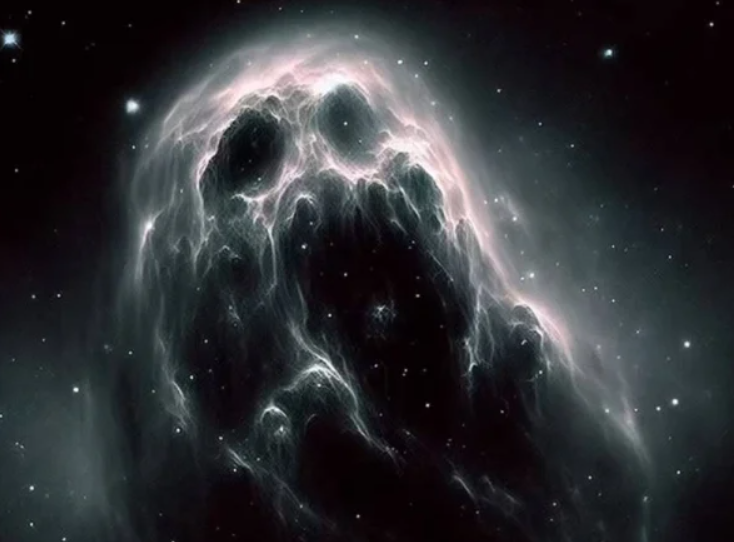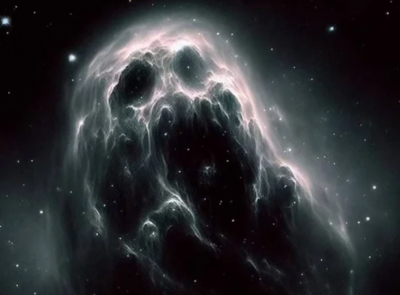The James Webb Space Telescope, belonging to NASA, captured a striking image of a face seemingly screaming in deep space. The picture, taken during the discovery by scientists at the University of Texas at Austin, depicts a galaxy that is birthing hundreds of stars each year, resembling a ghostly figure with two eyes and a large open mouth, according to the British newspaper "Daily Mail."
Astronomers identified the peculiar red spot in the telescope's data and pinpointed the galaxy that formed approximately 900 million years after the Big Bang, using images generated from James Webb's data, which are visualizations created by artists rather than actual pictures of the observed objects.
This discovery could alter scientists' understanding of the early universe, as they previously believed that massive star-forming regions were rare, but it appears they may be three to ten times more common.
Jedd McKinney, a postdoctoral researcher at the University of Texas at Austin, stated, "This thing is a real beast. Although it looks like a small bubble, it is actually forming hundreds of new stars each year." He added, "This thing that is barely visible in the most sensitive imaging from our latest telescope is very exciting for me," noting that there may be a whole ensemble of galaxies that have been hidden.
McKinney and his team are using NASA data to map the universe for the COSMOS-Web project, which aims to identify up to a million galaxies. Capturing dusty galaxies has been challenging because much of the light emitted by their stars is absorbed by a veil of dust, which re-emits it at redder wavelengths. However, the James Webb Space Telescope has made this possible due to its ability to capture infrared properties.
McKinney explained that "so far, the only way we have been able to see galaxies in the early universe is from an optical perspective using Hubble," emphasizing that "this means our understanding of the history of galaxy evolution is biased because we only see the unobscured and less dusty galaxies."




